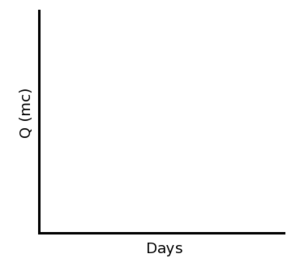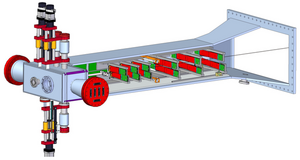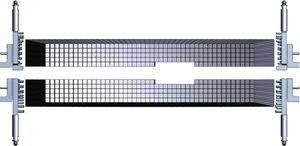Difference between revisions of "The HPS Run Wiki"
| Line 150: | Line 150: | ||
* After MCC finishes beam tune and upstream bpms are calibrated | * After MCC finishes beam tune and upstream bpms are calibrated | ||
** record harp scans at 2C21 and 2C24. These must be good scans, good S/N, no tails, and low halo count rates before proceeding. | ** record harp scans at 2C21 and 2C24. These must be good scans, good S/N, no tails, and low halo count rates before proceeding. | ||
| − | Standards are on this page: ACCEPTABLE BEAM CONDITIONS | + | Standards are on this page: ACCEPTABLE BEAM CONDITIONS. |
** make sure no bleedthrough-- counts when no beam? | ** make sure no bleedthrough-- counts when no beam? | ||
** After beam tune is done send HPS scaler GUI to the logbook with comments | ** After beam tune is done send HPS scaler GUI to the logbook with comments | ||
| Line 162: | Line 162: | ||
* Insert Chromax screen on the downstream viewer | * Insert Chromax screen on the downstream viewer | ||
* 4mm SVT Protection collimator in place | * 4mm SVT Protection collimator in place | ||
| − | * Restore 1 nA CW beam and have MCC bring beam to y~-5mm; x~5mm on the Chromax screen. (distance between dots=5mm). Record spot. Record scalers. | + | * Restore 1 nA CW beam and have MCC bring beam to y~-5mm; x~5mm on the Chromax screen. (distance between dots=5mm). Record spot. Record scalers. Repeat and record 2C21 and 2C24 harp scans and corrector settings. |
* Record position at 2H02 harp. Repeat at 10 nA. Must have good spots, nominal sizes, no tail to proceed. Position ok? | * Record position at 2H02 harp. Repeat at 10 nA. Must have good spots, nominal sizes, no tail to proceed. Position ok? | ||
* record scalers and beam location on screen. | * record scalers and beam location on screen. | ||
Revision as of 12:55, 24 March 2015
Important Phone NumbersShift ScheduleShift-Taker's Checklist (old)Hot CheckoutBeam Time Accounting |
Procedures |
Manuals |
JLab Logbooks
|
RC: John Jaros
PDL: Stepan StepanyanEvery Shift:
SVT InstructionsBefore sending beam to Faraday cup, verify (and page expert if otherwise):
The first time sending beam to the Faraday cup after the hall is closed, page the SVT expert.
Acceptable Beam Conditions:Before accepting beam, make sure all the conditions are met - beam profile and halo rates are what you expect (or very close to it). If unsure call to RC, PDL, or beamline expert!
Always read previous log entries, compare settings of BPMs and correctors with previous settings using scaler_hps GUI. Every Run:
|
DO NOT RUN MORE THAN 30 MINUTES ABOVE 50 nA WITHOUT THE BEAM BLOCKER Run Plan:March 23-24, 2015 (day/swing/owl)Overview: Upstream BPMs successfully calibrated yesterday. Machine down much of the night with CHL trip and vac trip.Resuming program today. Program: 1) MCC re-tunes upstream beam;(2) When beams are acceptable, MCC restores beams to alcove;(3) When decent beams have been reestablished, calibrate downstream bpms (4) post calibration, require good spot on Chromax, low counts on halo counters, and then set-up chicane. 5) scan target vertically and horizontally, measure halo rates vs target; (5) Take data. Subsystem commissioning studies: more trigger commissioning studies, beam trip studies once orbit locks are on. MCC works on beam optics and matching, and tunes beam to tagger
Standards are on this page: ACCEPTABLE BEAM CONDITIONS.
Restore Beam to the Hall-B Dump
Energize Chicane
Be very careful when changing magnet currents when beams are on. Must enter new current ACCURATELY. Small steps (few amps) only.
Are we centered?
Subsystem Commissioning Studies. Begin Data Taking.
| ||||||||||||||||||||||||||||||||||||||||||||||
|
|
| ||||||||||||||||||||||
|
|
|
| ||||||||||||||||||||||||||||||||||||||||||||||
|
Webcams:
|
Slow Controls: |
Accelerator:
|
Offline: |


